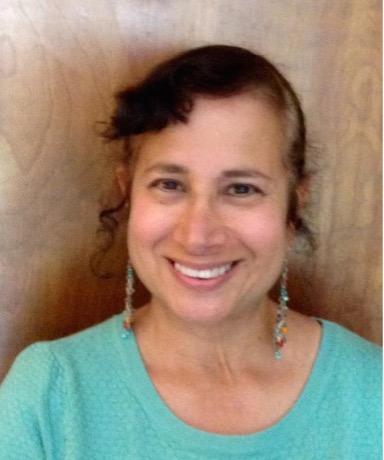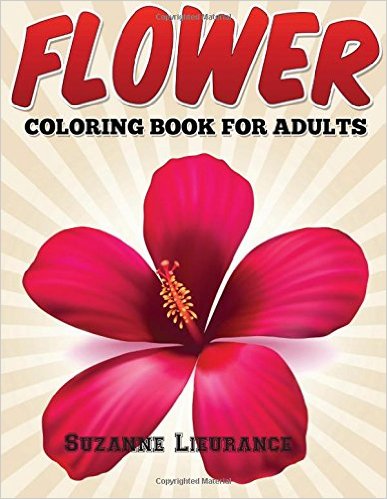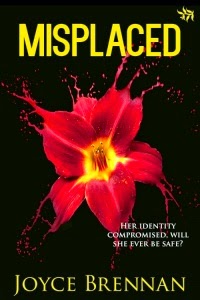by Suzanne Lieurance
Writers write all kinds of stuff.
Sharon Blumberg enjoys writing monologues.
Recently, I wanted to find out what attracted her to monologues and how she got started with this type of writing.
Her answers to the questions I asked her for this interview might help you see if you might have fun (and learn a lot) writing monologues.
Here is that interview:

Suzanne Lieurance: Sharon, how did you get interested in writing monologues?
Sharon Blumberg: When I was a child, I said “When I grow up, I want to become a movie star”, though now, this is an outdated term.
That never happened, aside from me taking center stage as a schoolteacher for over twenty years.
But I became intrigued with the concept of writing monologues for the stage.
I became involved in online writing programs.
That’s how I connected with Kelly Dumar.
Kelly is an author, poet, playwright, and workshop leader.
Kelly’s award-winning plays have been produced around the US and Canada and are published by dramatic publishers.
She founded and produced the Our Voices Festival of Women Playwrights at Wellesley College for twelve years, and she is a past president of Playwright’s Platform, Boston.
For the past seven years, Kelly had led the week-long Play Lab Intensive at the annual conference of the International Women’s Writing Guild and has taught her PLAY LAB with Showcase online regularly for the Transformative Language Arts Network.
Kelly is a certified psychodramatist, former psychotherapist, and Fellow in the American Society for Group Psychotherapy and Psychodrama.
Currently, Kelly produces the monthly Featured Open Mic Program for the Journal of Expressive Writing.
SL: How did you get involved with The Journal of Expressive Writing and writing monologues?
SB: Kelly runs the monthly Featured Open Mic Program for the Journal of Expressive Writing.
That is why Jennifer A. Minotti, Founder & Editor-in-Chief of this journal, hosted the most recent monologue showcase.
This journal is an online literary magazine that was founded in 2020.
It is the first online literary journal to publish expressive writing, free writing, non-fiction, personal essay, memoir, reflective essay, poetry, prose, contemplative discourse, and creative non-fiction—all that originate from a writing prompt—by both established and emerging writers.
After I took a writing class with Kelly Dumar, “Healing With Photos,” the Journal of Expressive Writing accepted and published one of my personal essays, titled, “Spatterdock.”
SL: What kind of process do you follow for writing a monologue?
SB: Generally, the main character speaks to someone/people, an animal, or an inanimate object.
The writing should demonstrate some allowance for possible questions and pauses the speaker may ask.
There is a structure the writer follows for monologue-writing format.
There is a setup and setting, a clear character voice, narration and exposition.
This process is a telling of a situation and a character arc.
The character arc involves growth for the better from beginning to end.
The speaker reclaims a dream-where something is at stake.
Sometimes brief stage directions may be inserted within the script.
SL: What is the revision process like for writing a monologue that will be performed live?
SB: While working on monologues within our class through zoom, we strive to not write essays, though monologue topics have come from personal essays I’ve written.
Each participant in my class has their monologue posted on the computer screen when taking their turn.
Then a participating actor in the class reads while acting it out aloud.
Everyone in the class makes comments regarding strengths, and improvements for the script.
SL: What is the most difficult part of writing a monologue?
SB: The most difficult part of writing a monologue is to make sure you’re not writing an essay but writing in monologue format.
You portray the speaker as addressing someone/something about an outstanding issue to you, the playwright.
There is a dialogue-like form that includes questions, pauses, and a few stage directions, within the script.
The difficult part is deciding what must be cut out.
Once you get started, it can be hard to stop writing!
There can be many sentences and phrases that need to be shortened.
The goal is to have the script run about three minutes or less.
And generally, for a double-spaced script, it runs about one minute per page.
The best way to know how long a script lasts, is to read it while timing it.
Once you feel it is drafted to your satisfaction, the overall goal is to submit it to a monologue submission venue, so it can be produced on the stage.
Then published in some form, later on.
SL: What is the most enjoyable part of writing a monologue?
SB: The most enjoyable part of writing a monologue is envisioning in what form it will take once it is written.
I mean, taking your written piece and watching a skilled actor make your creation leap off the page, bringing it to life!
SL: Does monologue writing help you with your other writing? If so, in what ways?
SB: Yes, monologue writing definitely helps me with my other writing.
With monologue writing, you want to make sure you have strong verbs, eliminate unnecessary fluff, and aim for an attention-getting beginning.
These are great elements to incorporate for better writing practices.
SL: How do you select topics for monologues?
SB: Topics one selects when writing a monologue tend to deal with events in the playwrights’ pasts or issues in which they have strong emotions.
These could be unresolved issues for self-reflection and expressed in monologue style.
Take that event and play it out within some kind of parallel universe.
What are something in your life that touches you so much, you feel compelled to write about it?
Were there friendships, family relationships, career colleagues, neighbors, former teachers, etc., with whom you wished these interactions or relationships transpired with a different outcome?
Further, as a student in a monologue class, I’ve learned that once the monologue comes to life, though the main character may be inspired by events in the playwright’s life, the main character takes on a separate life from that of the playwright.
Also, could something be too personal or intimate to share?
Could someone’s privacy or family’s privacy be invaded by what you write?
These are considerations to ponder when selecting topics for monologues.
SL: Please share some tips for writing monologues.
SB: Well, start with your deep passions, something that nags at you in such a way, that you have to tackle it.
Then write a draft based upon such a topic.
It can be humorous, serious, sad, angry, or a combination.
Then think of a risk-taking action that can give the main character an arc of growth, from beginning to end.
SL: How can other writers who want to write monologues get involved with The Journal of Expressive Writing?
SB: For people who would like to become future playwrights of monologues for the stage, I would recommend studying under the direction of Kelly Dumar. Her URL is: http://www.kellydumar.com/
However, the Journal of Expressive Writing is a great site to visit for literary magazine writers, and it hosted the last monologue showcase in January of 2023.



Thanks so much, Suzanne for posting this. I’m honored to be featured in your Coaching Monthly, The Morning Nudge, and WRITE BY THE SEA. I’m grateful to have you as a writing colleague, friend, and mentor, for many years.
Best regards,
Sharon O. Blumberg
https://www.sharonoblumbergauthor.com
You’re most welcome, Sharon.